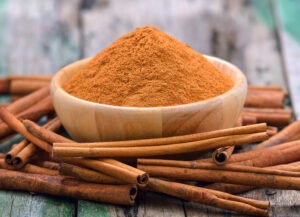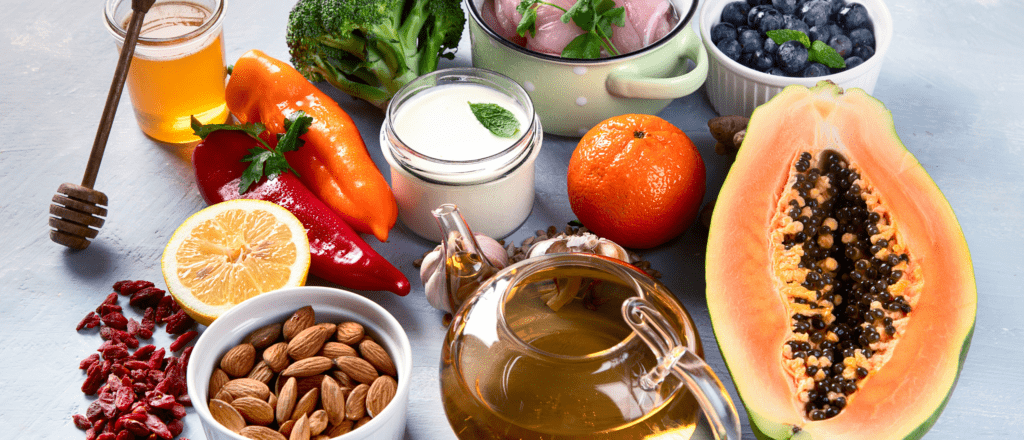
The recent COVID-19 coronavirus outbreak causes a variety of telltale signs and symptoms, ranging from fever and dry cough to more extreme symptoms requiring immediate medical help such as difficulty breathing and confusion.
We do not currently have any antiviral medications that specifically cure or treat COVID-19, so treatment will usually involve managing symptoms with supportive treatments.
COVID-19 vaccines are now available in order to help protect you from becoming infected with the virus.
If you have relatively mild COVID-19 symptoms and don’t have any other medical conditions that would put you at high risk for developing complications of COVID-19 (over the age of 65, diabetes, COPD, heart disease, kidney disease, HIV, asthma, undergoing cancer treatment), these vitamins and supplements might help strengthen your immune system to fight coronavirus.
It is important to note that no vitamin or supplement can cure COVID-19, nor is there solid evidence any non-FDA-approved vitamin or supplement has any effect on COVID-19. The immune-supporting effects of supplements and vitamins in the context of the coronavirus are theoretical.
Vitamins and supplements may interact with one another in your system and with prescription or over-the-counter medications. Notify your doctor about all the drugs and supplements you are taking and do not start a vitamin regimen without consulting your physician.
What vitamins can help prevent COVID-19 and other illnesses?
Because COVID-19 comes with cold and flu-like symptoms, Vitamins B, C, and D, as well as zinc may be helpful in boosting your immune system and fighting the illness in the same way they can help you get over a cold or flu.
Vitamin C

Generally, vitamin C can help you fight a cold faster or ease your cold symptoms if you were taking it prior to getting sick. As an antioxidant, vitamin C can help reduce inflammation—and lung inflammation is a severe symptom of COVID-19, which can lead to respiratory distress or even death. So if you’re still healthy, it doesn’t hurt to start taking vitamin C now.
Vitamin D
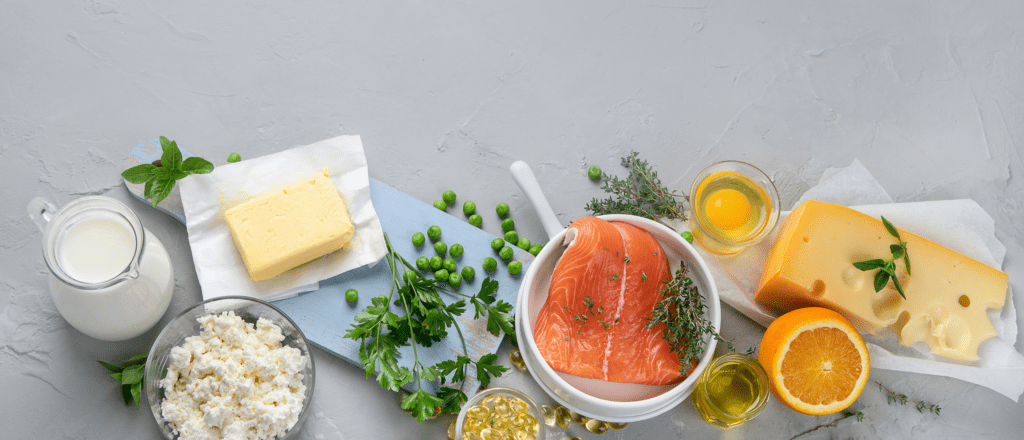
The primary function of vitamin D is to help your body maintain optimal blood levels of calcium and phosphorous, which you can get through exposure to the sun’s ultraviolet rays, or through supplements and the foods, you eat.
Getting enough vitamin D can also protect you from a respiratory infection. Vitamin D supplementation significantly decreases the chance of respiratory tract infections, based on clinical studies published in the Journal of Pharmacology and Pharmacotherapeutics.
B Complex vitamins
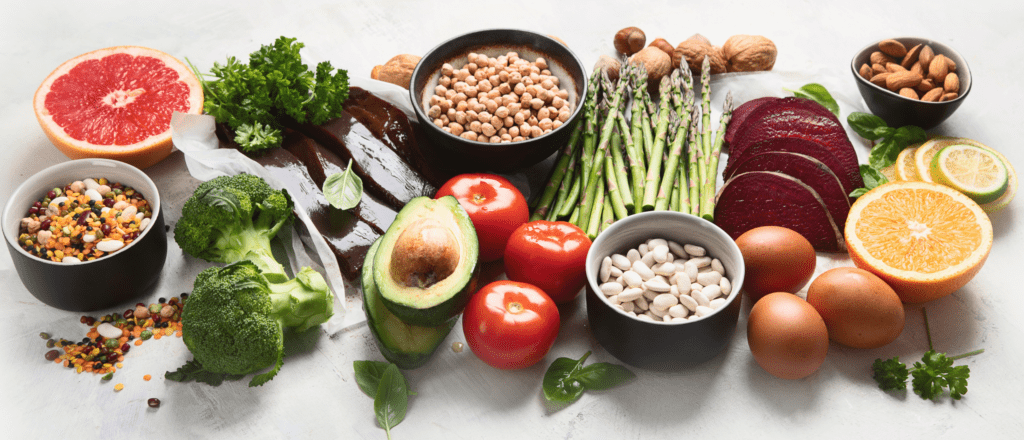
Vitamin B6 is essential to keeping your immune system in top condition. Be sure to get enough vitamin B as a supplement, as part of your daily diet (you can easily get your daily intake from fortified cereals), or in a multivitamin.
Zinc
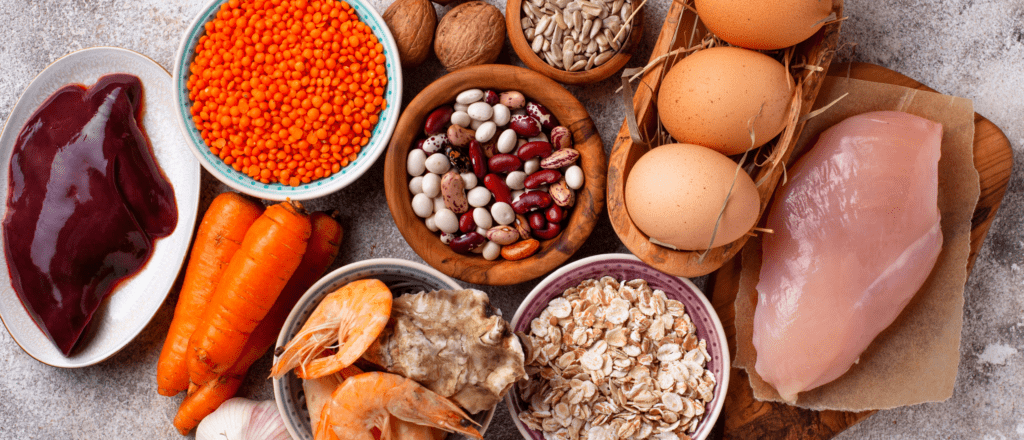
Popping a zinc throat lozenge, or taking an over-the-counter cold remedy with zinc in it (as a syrup or tablet) helps shorten the length of rhinovirus colds. Zinc also helps symptoms—nasal congestion, nasal drainage, sore throat, and cough—resolve sooner.
Zinc has also been found to help produce and activate T-cells (t-lymphocytes), which trigger the body to respond to infections, according to the NIH.
For a faster recovery, start taking zinc to treat your illness within the first 24 hours of symptoms. A proper dose of zinc is 75 mg but beware: Taking more than 150mg per day of zinc could cause zinc toxicity and also have a negative impact on your immune system.
If you’re taking more than one zinc medication, check with your doctor first to prevent adverse reactions.
What are the best supplements to take during the COVID-19 crisis?
Whether eaten as a whole food or in the form of a pill, the following supplements may help keep you healthy and your immune system in top shape to combat coronavirus. Once again, the benefits are theoretical.
Elderberry

Full of antiviral and anti-inflammatory properties, elderberry syrup is used as a remedy for colds, influenzas, and bacterial sinus infections. Elderberry works by reducing swelling in the mucus membranes.
Some studies suggest elderberry extract reduces the duration of the flu, which is why some believe it may also help your immune system against coronavirus (COVID-19) infection.
Mushrooms
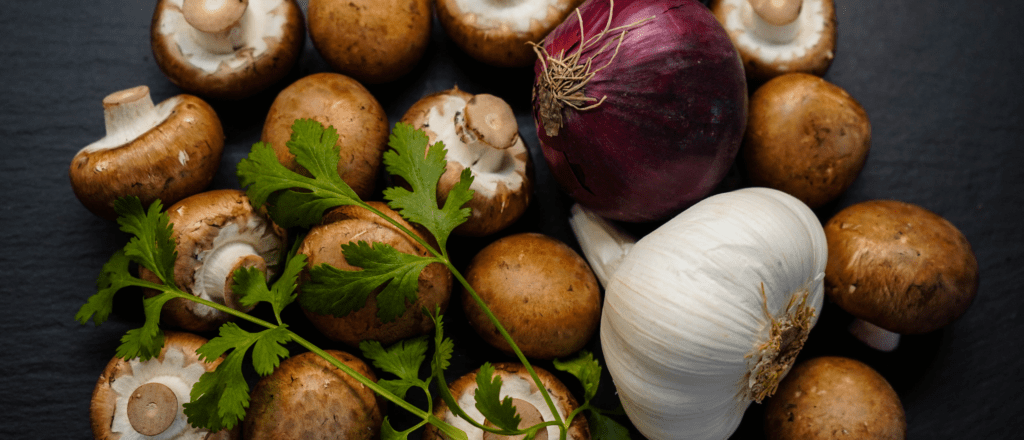
Mushrooms are high in selenium and B vitamins like riboflavin and niacin, which are needed to keep the immune system running optimally. Mushrooms are also high in polysaccharides, sugar-like molecules that boost immune function.
Astragalus
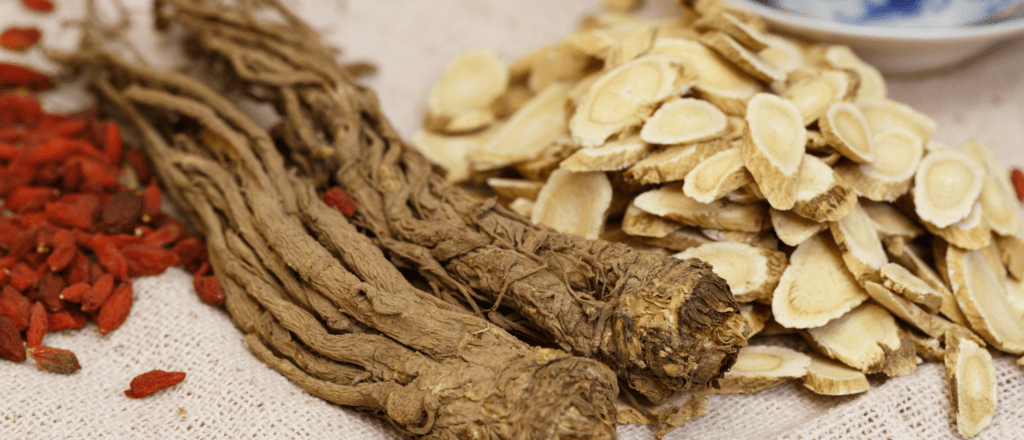
Astragalus is an herb, and its root is used in medicine. Typically used to strengthen the immune system and treat the common cold, upper respiratory infections, seasonal allergies, swine flu, astragalus is also used to fight bacteria and viruses.
Its effectiveness against illness doesn’t have a lot of research behind it, although in treating seasonal allergies, 160 mg of astragalus root extract (Lectranal by Milsing d.o.o.) by mouth daily for 3-6 weeks was found to improve symptoms such as running nose, itching, and sneezing.
Selenium
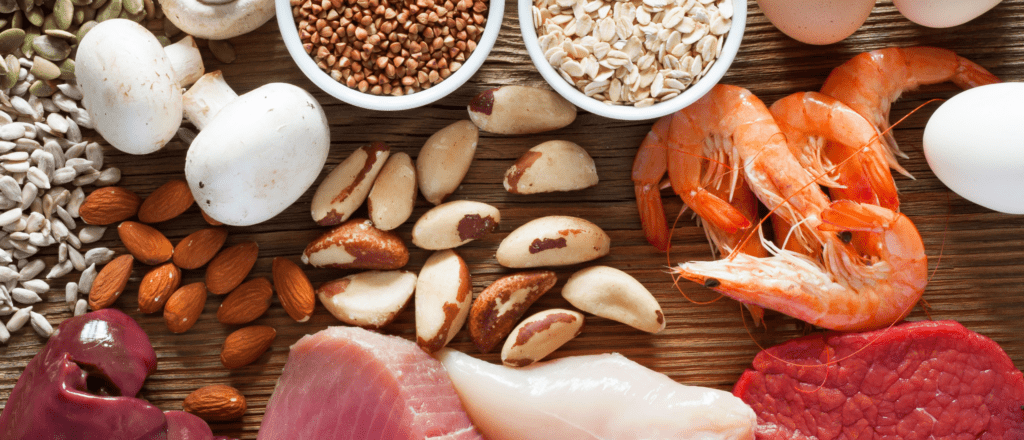
Selenium is a mineral with a variety of uses, including preventing bird flu and swine flu. A potent antioxidant, selenium can boost immune function, except in those with autoimmune disorders, who could experience a negative impact on their immune system.
Garlic
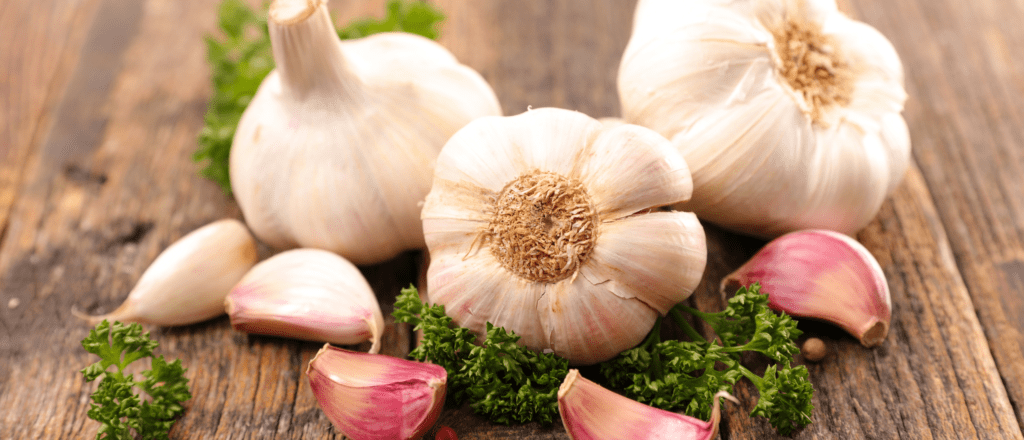
Garlic’s antiviral properties may be helpful in reducing the severity of symptoms in colds, flu, or COVID-19 infections.
In one study, people who took garlic supplements during the cold season caught fewer colds than those who took placebo pills. Garlic may also shorten the duration of a cold. While you can eat garlic fresh, you can also take it in the form of a supplement.
Andrographis
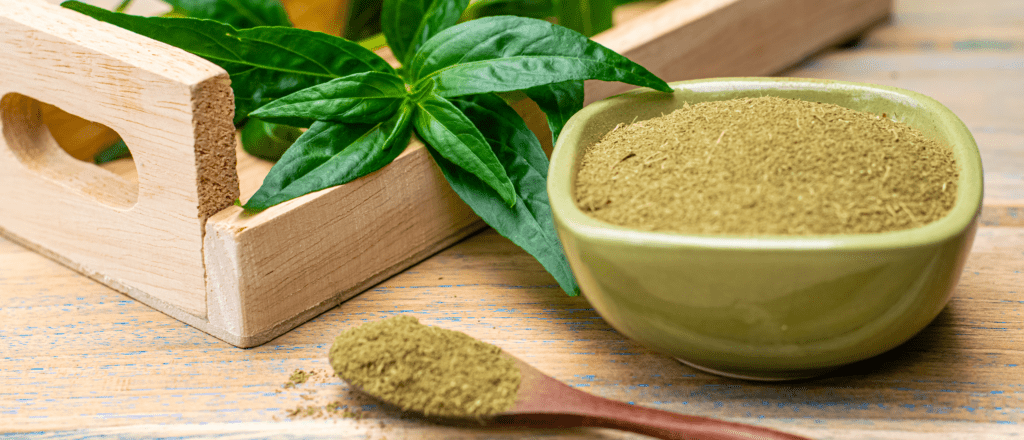
A plant used in medicine for a variety of ailments, Andrographis is frequently used as a painkiller and fever reducer, and to treat the common cold and flu.
Taking Andrographis extract in combination with Siberian ginseng (Kan Jang, Swedish Herbal Institute) may improve symptoms of the common cold when started within 72 hours of feeling sick.
According to another study, patients with flu who took a specific Andrographis extract in combination with Siberian ginseng (Kan Jang, Swedish Herbal Institute) felt better more quickly than patients taking amantadine, a drug approved by the federal Food and Drug Administration (FDA) to prevent Asian flu and treat Influenza A. They also experienced fewer complications after the flu: sinus pain, breathing problems, and coughing (bronchitis).
Licorice root
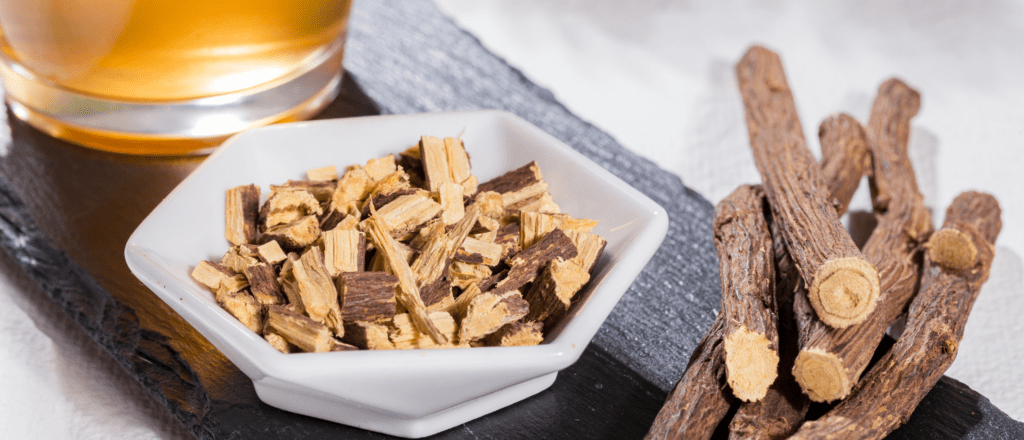
Licorice root, when used as a gargle, may be used to soothe the pain of a sore throat, a common symptom of coronavirus, according to a 2009 study in the journal Anesthesia & Analgesia. Additionally, licorice root can loosen congestion and reduce inflammation. You can also chew a piece of licorice root or drink it as tea.
Pelargonium sidoides
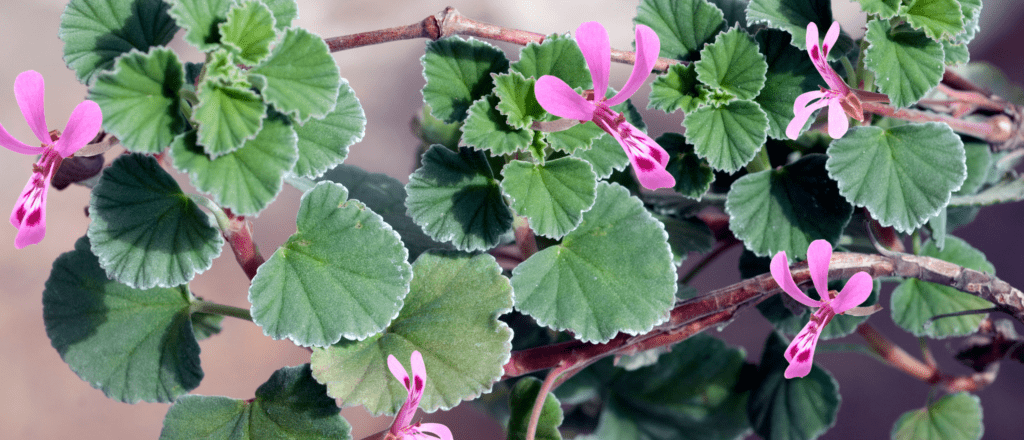
Also known as Umckaloabo among other names, pelargonium sidoides is commonly taken by mouth for upper respiratory infections including bronchitis, sinusitis, sore throat, tonsillitis, and the common cold.
Taking a specific extract of pelargonium sidoides seems to help reduce symptoms and clear up the common cold after 10 days of treatment. It also lessens symptoms of bronchitis in adults within 48 hours of feeling sick.
Curcumin
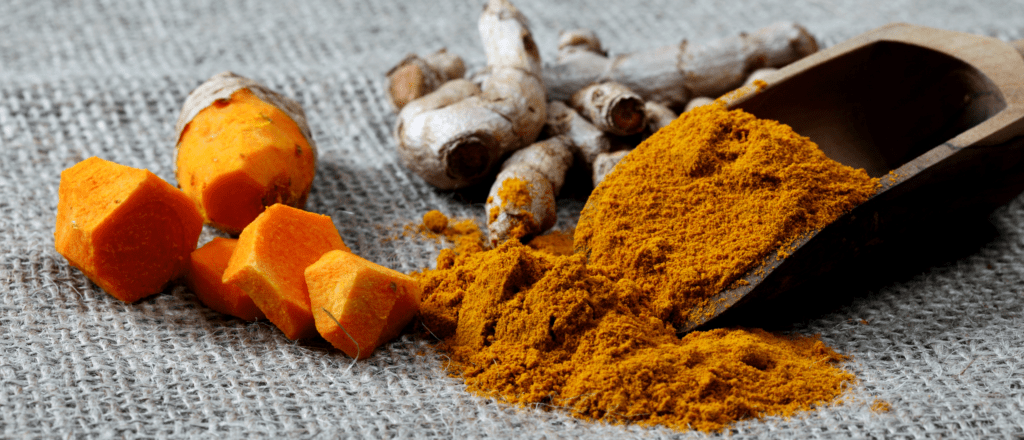
Curcumin is derived from the Curcuma longa plant, commonly known as turmeric. Curcumin is used in Ayurvedic and Chinese medicine for its analgesic, anti-inflammatory, and antiseptic activity. Curcumin can help fight inflammation and aid the body’s immune response, as found by a study published in Molecules.
Echinacea
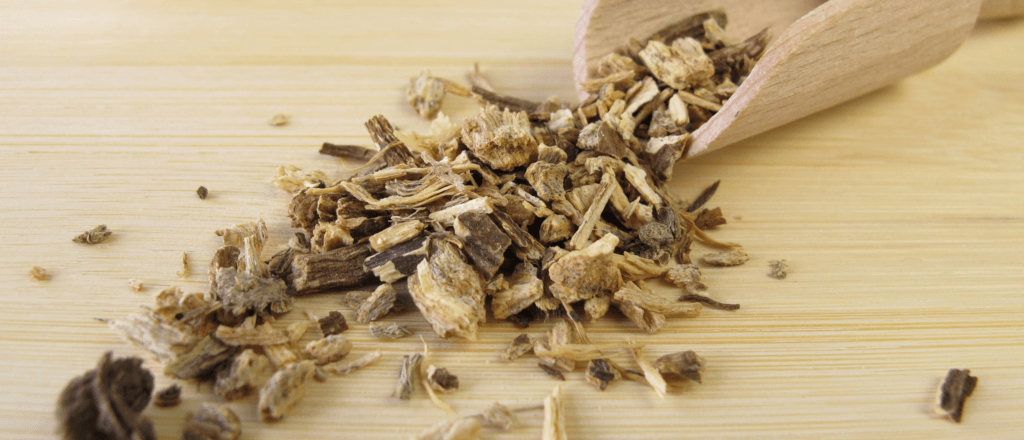
Echinacea has been used to treat cold symptoms upon the first signs of illness, but the research on its effectiveness varies. Some research shows that taking echinacea can reduce the risk of catching a cold by 45% to 58%. But other research shows that taking echinacea does not prevent the common cold when you are exposed to cold viruses.
Early research shows that taking a specific echinacea product (Monoselect Echinacea, PharmExtracta, Pontenure, Italy) daily for 15 days might improve the response to the flu vaccine in people with breathing problems such as bronchitis or asthma, and these are high-risk types who could suffer complications of COVID-19.
When combined with antibacterial and antiseptic sage as a throat spray, echinacea and sage were found in a 2009 study to ease the pain of a sore throat.
Propolis
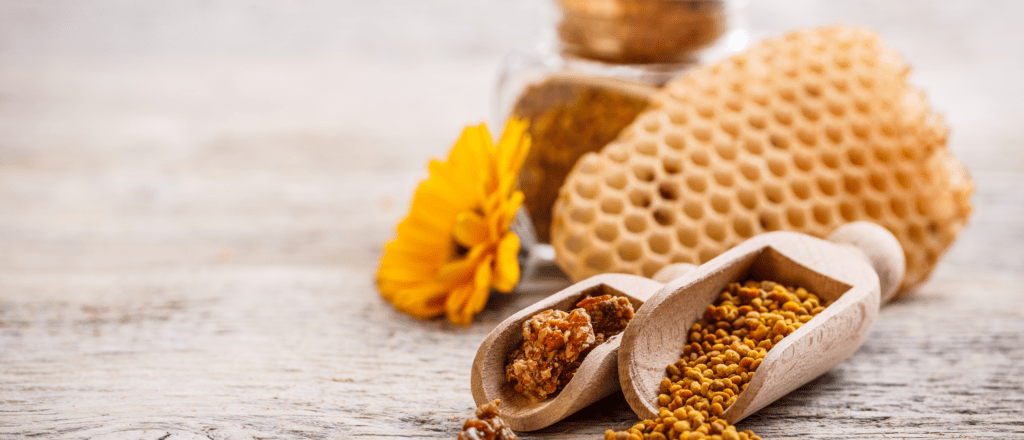
Propolis, a resin-like material from the buds of poplar and cone-bearing trees, is used for boosting the immune system, and as an antioxidant and anti-inflammatory agent. Some evidence suggests that propolis might help prevent or reduce the duration of common colds and other upper respiratory tract infections.
Acai berry
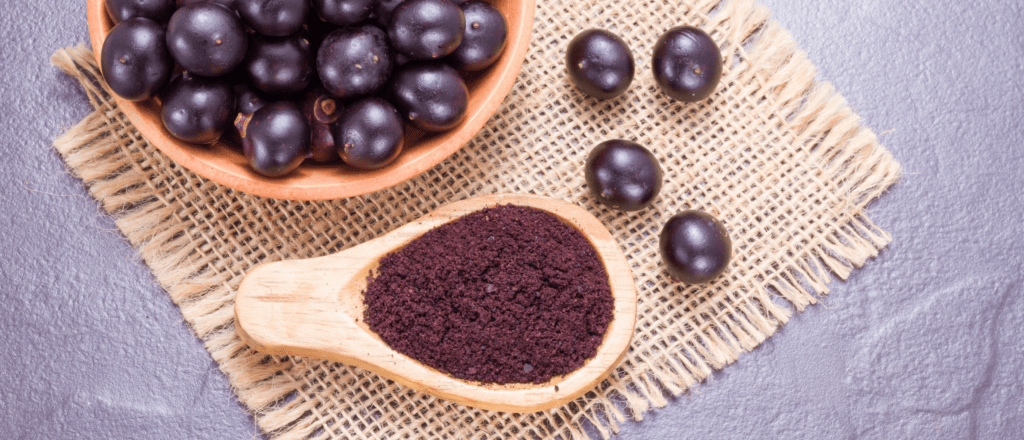
Acai berry is such a potent antioxidant and stimulator of the immune system, researchers are studying it as a potential treatment for all kinds of conditions, and it’s often touted as a support of general health and immune function.
What alternative medicine supplements can I take to protect myself from COVID-19?
The Chinese government and state-linked news agencies touted traditional Chinese medicine for symptom relief during the original December 2019 coronavirus outbreak in Wuhan, China. There is little good evidence that TCM is effective, but it has been correlated with some reduction in symptom duration in some studies.
Based on studies of traditional Chinese medicine (TCM) focused on the prevention of severe acute respiratory syndrome (SARS) and H1N1 influenza, researchers found:
None of the participants who took TCM contracted SARS in the three SARS studies.
The infection rate of H1N1 influenza in the CM group was significantly lower than in the non-CM group in the H1N1 studies.
The following supplements, as noted in the Chinese Journal of Integrative Medicine, are suggested for treating and/or preventing coronavirus symptoms:
- Radix astragali (Huangqi, or astragalus): boosts the immune system and may prevent colds and upper respiratory infections.
- Radix glycyrrhiza (Gancio, or licorice root): relieves sore throat and cough, and may ease symptoms of COVID-19.
- Radix saposhnikoviae (Fangfeng, or siler root): in traditional Chinese medicine, it’s commonly used to treat general aches, headaches, fever, cold, and allergic rhinitis.
- Rhizoma Atractylodis Macrocephalae (Baizhu, or Atractylodes): in traditional Chinese medicine, it’s used to support lung health.
- Lonicerae Japonicae Flos (Jinyinhua, or honeysuckle): decreases inflammation in upper respiratory tract infections including colds, influenza, swine flu, and pneumonia; other viral and bacterial infections.
- Fructus forsythia (Lianqiao, or forsythia): decreases inflammation of small air passages in the lung (bronchiolitis), tonsillitis, sore throat, fever, and more.
Both studies, however, warn against using TCM as the standard treatment or prevention protocol for any of these infections.
Before taking any herbal supplements, check with your doctor first if there may be any interactions with other medications you are currently taking.






























